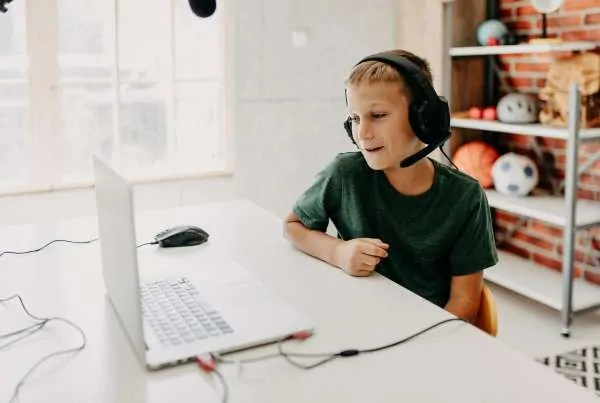Adolescents experience a lot of stress, more than we may even realize. Stress can come from the natural ups and downs at school because of academic pressure, or via social circles, or from an overwrought family system. For some kids, one thing leads to another, and they find themselves trying to process all of that at the same time. How often are these kids who are struggling in this way, boxed into the at-risk nomenclature? Naming the problem and doing something about it are very different things. Further, if we tell these kids they are at-risk, it evokes a negative connotation. These kids are, in reality, under-served and often ignored.
I teach a yoga class to tweens/teens, and I was warned that one of my new kids was a “problem.” I was told she would be a “nightmare” because she was caught smoking last year, implying that she was also a “bad” kid. I chose not to view her as a problem, or a nightmare, or bad. Instead, I approached her with compassion and kindness and boundaries. I recognized that this kid doesn’t need to be judged; she needs to be seen. She has become one of the most dedicated students in my class. She looks forward to being there. She is kind to her classmates and respectful to me, the teacher. This young lady has allowed herself to be vulnerable enough to allow the process of yoga and conscious breath to disassemble her stress–even if it’s in incremental amounts. The shift has been profound.
A new study talks about teenage girls being more prone to depression when they are exposed to a lot of stress. My class is comprised mostly of girls, most of whom share that they are under stress. In this recent study, “Jessica Hamilton a doctoral student in the Mood and Cognition Laboratory of Lauren Alloy at Temple University hypothesized that life stressors, especially those related to adolescents’ interpersonal relationships and that adolescents themselves contribute to (such as a fight with a family member or friend), would facilitate these vulnerabilities and, ultimately, increase teens’ risk of depression.”
Researchers examined data from 382 Caucasion and African-American students in an ongoing study. Their findings corroborated Hamilton’s theory, showing increased levels of rumination, depression and emotional vulnerability. Seven months later, when they did follow-up testing, the girls showed higher levels of depressive systems than the boys did. The study also showed that the girls had been faced with more stressors than the boys had. The theory is that if boys and girls faced the same amount of stress, the results of the research would have reflected higher rates in depression regardless of sex.
Stress can be a direct result of consistently not having one’s needs met, feeling disconnected or alone, and from unmitigated change at home: divorce, job loss, violence, poverty, or chronic illness. Additionally, the new independence that comes with the teen years can also be stressful. As much as teens want to individuate, the reality that they have to suddenly do many things themselves can be overwhelming for some.
How can we de-stress? Try one or all of these on for size:
1: Time outs are a time in. They are an opportunity for us to reset our minds and bodies.
2: Ask for help. You don’t have to do this alone.
3: Get some fresh air: go for a walk, or find a way to get outside!
4: Take a media time out: unplug for an hour, and dedicate that time to self-care. If you really want to challenge yourself, turn your phone off for the day!
5: Breathe: 10 deep breaths, extending the exhale each time. Do three or more cycles of this.
6: Say no. No is a complete sentence. Remember this!
Each of these tools encourages an emotional reset. They help turn that fight-or-flight response off and help your body engage its rest-and-digest system. Sometimes, we have to consciously remind our bodies to slow down, but we have to practice. Studies like the one above are a good reminder, a wake-up call, telling us that we have to slow down and process our emotions in a safe, reflective way. Teens need to know they will be ok.
Originally posted on October 10, 2014 @ 11:57 am








